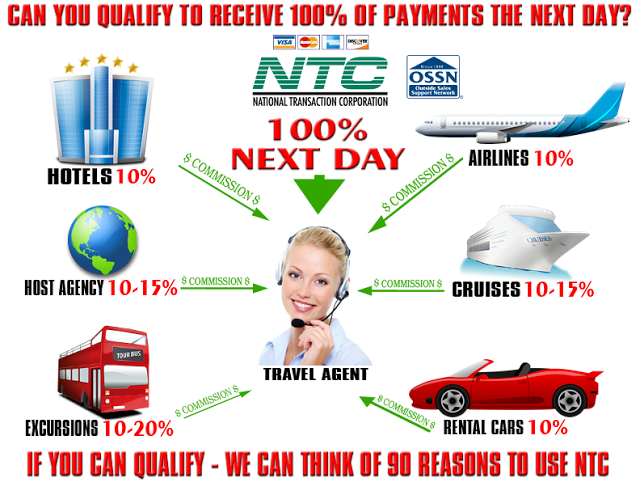
November 21st, 2016 by Elma Jane
What makes travel merchant high risk?
Travel environments are unique and transactions are usually keyed in. There’s almost always a delayed delivery period, and large ticket transactions.
One card holder may be paying for multiple tickets and they tend to be seasonal; with peak season months generating an unusual spike in their “average” monthly volume and chargebacks, pose a potential threat by travelers who are unable to complete their trip.
These factors can cause for either a reserve or account termination. Therefore travel merchant accounts are considered high risk.
Most merchants do not realize that merchant processors carry a financial risk on merchant accounts, and normally fund merchants prior to receiving payment from the client’s bank. Therefore, a merchant account is an unsecured loan.
The merchant runs a transaction and at the end of the day they settle their batch. The merchant will receive the funds for that batch in their bank account within 2 business days, even though the travel arrangements the client paid for do not take place right away.
Here at National Transaction Corp, we specialize in understanding what makes your transactions as a travel agent unique and how they affect your merchant account.
Educating the merchant and ensuring they have a good understanding of what makes travel merchant account high risk, is one of our specialties.
Call NTC to speak with a Travel Merchant Account Specialist today!
Dial 888-996-2273
Posted in Best Practices for Merchants, Travel Agency Agents Tagged with: bank, card, chargebacks, financial, loan, merchant, payment, processors, transactions, travel, travel agent, Travel Merchant

November 18th, 2016 by Elma Jane
Tokenization and Encryption are completely different technologies when it comes to securing sensitive data, such as credit cards.
Encryption tools and techniques is to mask original data, then allow it to be decrypted. It uses an algorithm to scramble credit card information that makes the data unreadable to anyone.
Encryption is most often “end-to-end.”
Example: When someone enters card data into a web browser to buy an item and decrypted when the purchaser’s authorized credit card information reaches its intended destination, which is the merchant’s e-commerce database.
Encrypted card data is unreadable while it’s “at rest” in a database or “in motion” during a purchase transaction; and inaccessible until a key decrypts it. The chances of a hacker stealing the data is minimal. But, if card data passes through multiple internal systems en route to an acquiring bank or payment gateway, the encrypt/decrypt/re-encrypt process could open a wide security hole, thus creating vulnerabilities to hackers.
Tokenization have found to be cheaper, easier to use and more secure than end-to-end encryption.
Tokenization completely removes credit card data from internal networks and replaces it with a generated, unique “token”. Tokens have no meaning and are worthless to criminals if a company’s system is breached.
Merchants use only the token to retrieve, access, or maintain their customers’ credit card information.
Example: Actual credit card number was 3234 4567 8789 78910, it might become FHIW145BVE65478 when a token is generated. The token is randomly generated and there is no algorithm to regain the original card number. hackers can’t reverse-engineer the actual credit card number, even if they were to grab the tokens off the servers.
Using tokens doesn’t change a merchant’s payment processing experience. Only they’re much safer for a merchant than actual credit cards.
Posted in Best Practices for Merchants, Credit Card Security Tagged with: card, credit cards, customers, data, encryption, gateway, merchants, payment, Security, token, tokenization, transaction
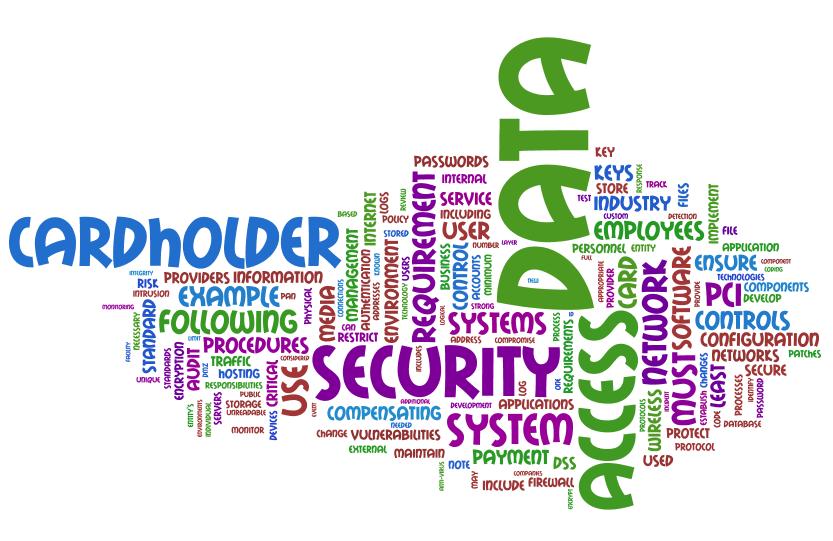
November 17th, 2016 by Elma Jane
Payment Card Industry
What is PCI DSS (Payment Card Industry Data Security Standards)? A set of requirements, founded by Amex, Discover, JCB, MasterCard and Visa; to facilitate industry-wide adoption of consistent data security measures on a global basis. Best practices for enhancing payment account data security.
Why does my business need to be PCI Compliant? You help protect your business
by reducing the risk of a costly breach of your customers’ payment card data. Payment card brands (Amex, Discover, JCB, MasterCard and Visa) mandate that all businesses processing payment cards must be compliant.
Once my business validates PCI-DSS compliance, does that prevent a security breach from happening? No. It helps prevent security breaches and loss of cardholder data but do not provide a guarantee to your business. Also, similar to the regularly required updates to anti-virus and firewall software; data security is also continually subject to new threats.
What happens to my business if I am not PCI Compliant? If you do not comply with the security requirements contained within PCI-DSS as mandated by the payment card networks; you put your organization at risk of a payment card compromise.
In the event that your business is compromised, you may also be subject to additional fines, fees, and assessments by the card brands. You may also lose your credit card acceptance privileges.
What am I required to do to validate PCI compliance? The minimum requirement for PCI Level 4 business is to complete a PCI-DSS Self-Assessment Questionnaire (SAQ) on an annual basis and achieve a passing status.
Posted in Best Practices for Merchants, Payment Card Industry PCI Security Tagged with: card, credit card, customers, data, payment, PCI, Security
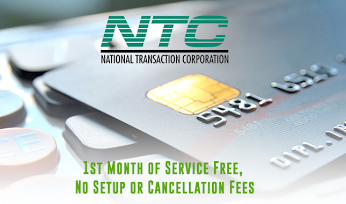
October 14th, 2016 by Elma Jane
Merchant Account is a LOAN!
Merchant accounts are not depository accounts like checking and savings accounts; they are considered a line of credit. Therefore, when a customer pays with a credit card; a bank is extending credit to that customer and also making the payment on his/her behalf. As for processors or payment providers; they pay merchants before the banks collect from customers and are therefore extending credit to the merchant, that’s why Merchant account is considered as a LOAN.
Posted in Best Practices for Merchants, Financial Services, Travel Agency Agents Tagged with: bank, credit, credit card, customer, loan, merchant, merchant account, payment, payment providers, processors
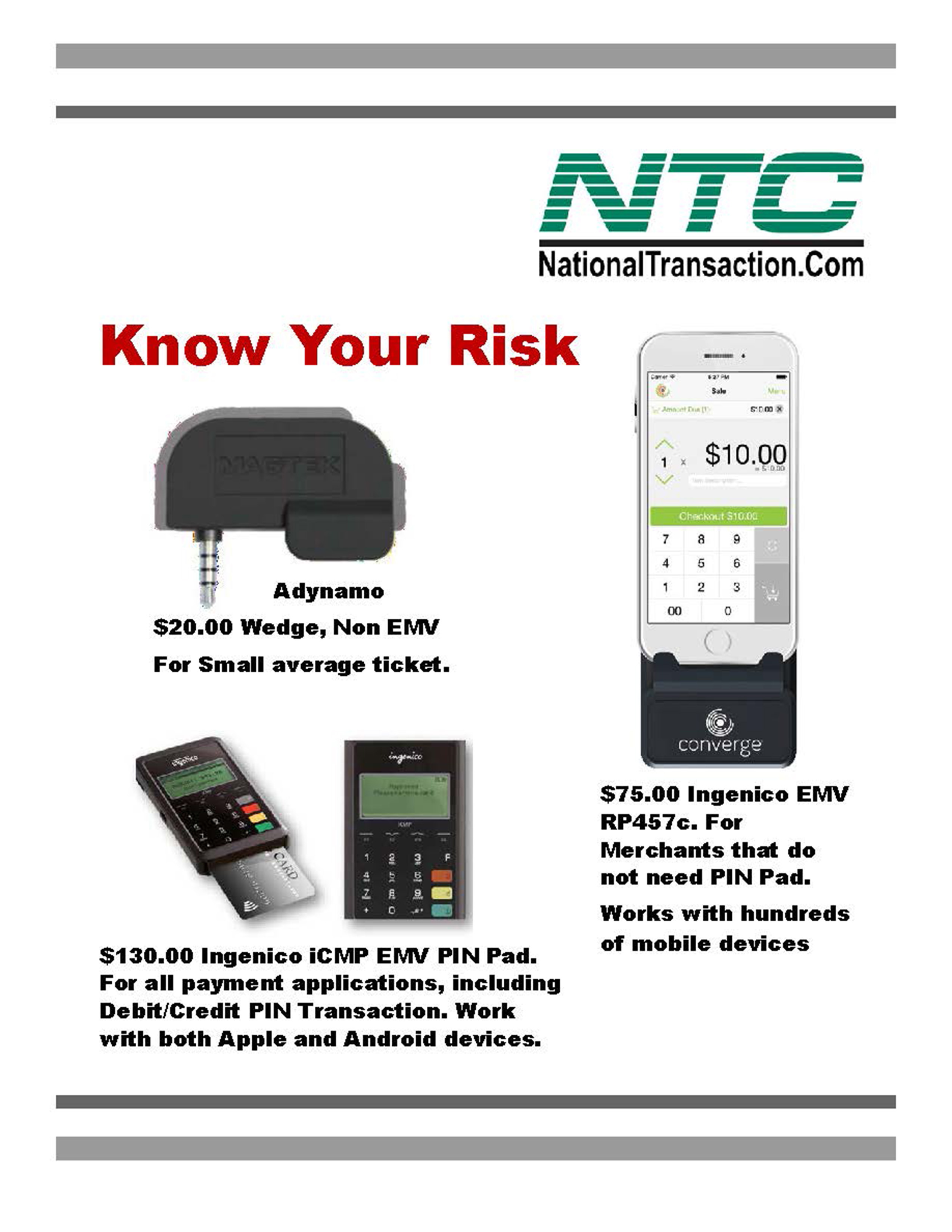
October 11th, 2016 by Elma Jane
Cybersecurity via Converge:
Converge uses a multi-layered approach to security which helps keep cardholder data safe throughout the entire payment process; from beginning to end.
- EMV: All new Ingenico PIN pads and readers – iCMP and RP457c used with Converge Mobile offer EMV to help protect against counterfeit card use. The PIN pads go a step further in helping protect against lost; stolen and NRI (never received/issued) when a PIN-preferred card is accepted with PIN entry.
- Encryption: All new Ingenico devices also include encryption as a standard security component in addition to protect card data in transit.
- Tokenization: An enhanced security feature that is particularly valuable in card-not-present (CNP) environments when cards are stored on file for processing at a later time, or either for recurring/installment payments.
Get the Ingenico iCMP EMV PIN Pad for only $130.00.
For all payment applications, either Debit or Credit PIN Transaction. Work with both Apple and Android Devices.
Ingenico EMV RP457c card reader for only $75.00.
For Merchants that do not need PIN Pad. Works with hundreds of mobile devices.
Posted in Best Practices for Merchants, Credit Card Security, EMV EuroPay MasterCard Visa, Mobile Payments, Smartphone Tagged with: card, card-not-present, cardholder, data, EMV, mobile, payment, PIN pads, Security, tokenization
September 12th, 2016 by Elma Jane
Ingenico RP457c card reader is now available at NTC for $75.00 plus encryption and shipping!
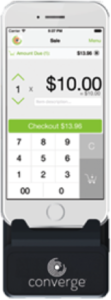
NTC are pleased to announced the launch of Converge Mobile 1.3, which includes support for the new Ingenico RP457c.
An all-in-one card reader that accepts:
- Mag stripe
- chip card
- contactless payments including mobile wallets
Customers can utilize audio jack to connect the device to their either smartphone, tablet or connect via Bluetooth.
In addition to the converge Mobile portfolio, Ingenico RP457c is a lower price point for customers who are cost sensitive. It offers the same payment flexibility as the iCMP.
Both RP457c’s and iCMP devices also offer encryption technology, adding another layer of security to help protect card data at the point of entry and throughout the payment lifecycle.
One key difference is that iCMP is a PIN pad that supports chip & PIN as well as debit PIN transactions, while the PR457c is a card reader only; therefore chip and signature and signature debit are supported on this device.
For your electronic payment needs or to purchase the device give us a call now 888-996-2273 www.nationaltransaction.com
Posted in Best Practices for Merchants, EMV EuroPay MasterCard Visa, Smartphone Tagged with: card data, card reader, Chip & PIN, chip and signature, contactless payments, customers, mobile wallets, payment, PIN pad, Security, signature debit, smartphone, transactions
August 30th, 2016 by Elma Jane
NTC’S 20th Anniversary! October 7th, Friday at our sales office come join us.
As part of our celebration we have Lincoln Kokoram to do a brief Sales Training on How to Overcome Telephone Objections. 11am-3pm.
In addition, Mark Fravel, Founder/President of National Transaction; will have his FYI remarks from what he learned for over 20 years in the Payment Industry, while building a strong relationship with his partners’ and exceeded excellence in his company. 3pm-5pm
Cocktail Dinner will follow!
Come celebrate with us RSVP needed before September 30th.
Please contact or email Elaine Zamora at 888-996-2273 Extension 1111 elaine@nationaltransaction.com
Check our website: www.nationaltransaction.com/ www.ziebest.com/national/
Posted in Best Practices for Merchants, nationaltransaction.com Tagged with: payment, payment industry, transaction
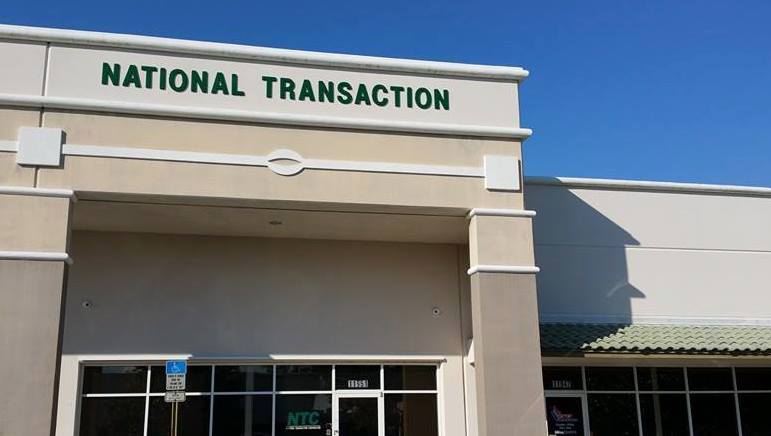
August 22nd, 2016 by Elma Jane
National Transaction 20th Anniversary
Join National Transaction at our Sales Office, in celebration of our 20th Anniversary. October 7th Friday, from 11am until 3pm.
As part of our celebration we have Lincoln Kokoram to do a brief Sales Training on How to Overcome Telephone Objections.
Lincoln Kokoram has been conducting seminars, workshops and platform speaking for the past 32 years. And having trained in over 35 countries.
In addition, Mark Fravel, founder/President of National Transaction; will have his FYI remarks from what he learned for over 20 years in the payment industry while building a strong relationship with his partners’ and exceeded excellence in his company.
Come celebrate with us and attend the training! RSVP needed before September 30th.
Call us at 888-996-2273 or go to www.nationaltransaction.com for more information.
Posted in Best Practices for Merchants Tagged with: payment, payment industry, transaction
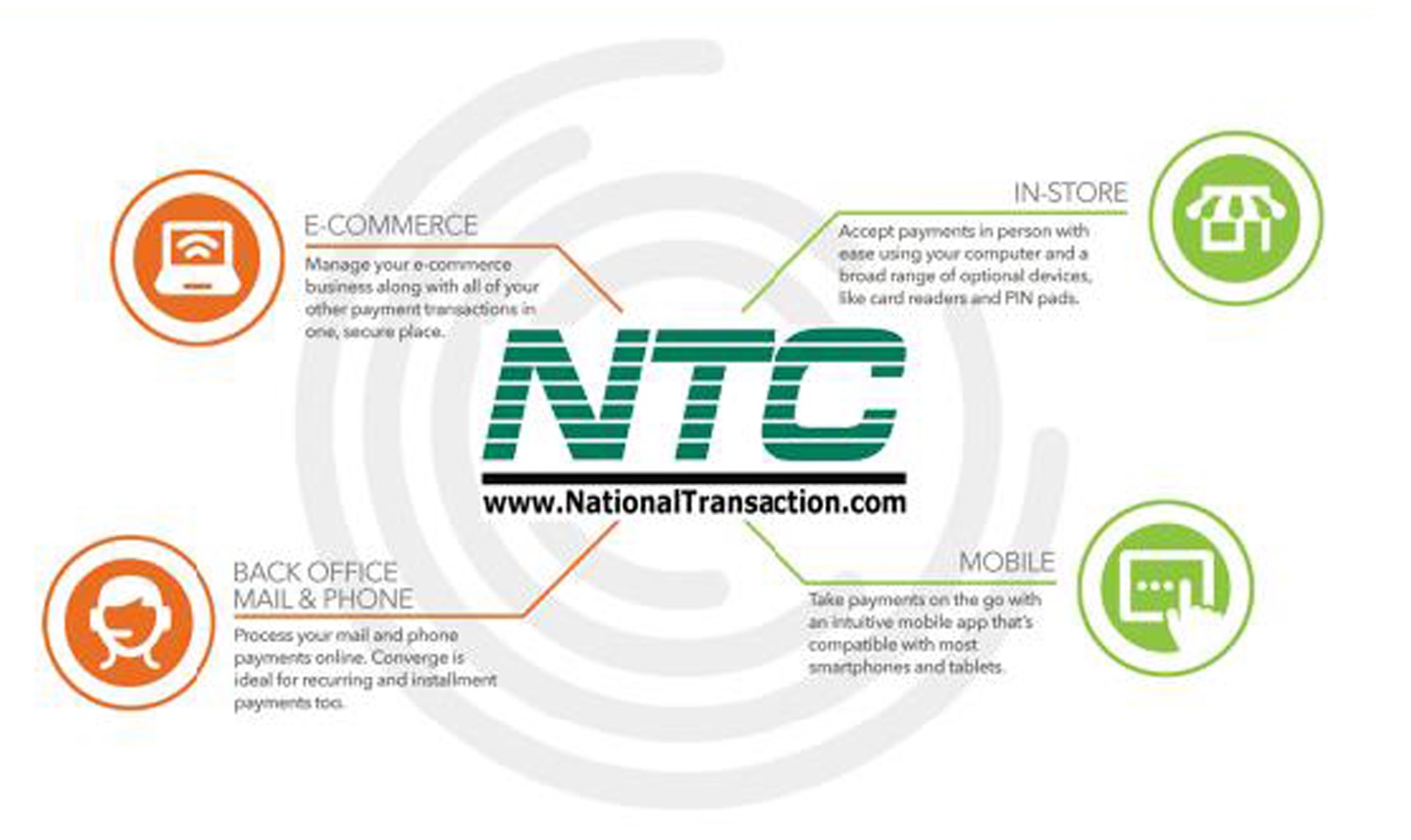
August 3rd, 2016 by Elma Jane
National Transaction offer valuable features and benefits. If you want to improve your business’s productivity, you should look for this features that you need from your merchant account provider.
Advanced Security Options – did you know that 6 out of 10 small businesses close within six months of a card data breach? Point-of-Sale devices should have appropriate security measures, particularly EMV, encryption and tokenization. With National Transaction we have Safe-T for Small and Medium Businesses and Safe-T for Large Businesses. Top-tier security is important on all your business’s data especially customer information, consider adding additional authentication procedures. Merchant account providers bundle various security features to make the process of becoming secure.
Fast Payment Processing – having up-to-date technology is the first step because some customers might become annoyed by slow service and leave. The sooner you have the money processed by your merchant account provider, the bigger and stronger your business can become. NTC is adept at administering payments quickly and efficiently. We can provide regular funding or next day funding.
Feature Flexibility – Look for a merchant provider that appropriately addresses your payment concerns. Obtaining the features you need from your merchant services provider is very important.
Mobile Payment Processing – NTC offer Virtual Merchant/Converge Mobile that gives you the ability to accept payments using your smartphone or tablet anywhere you go. The app works with most Apple and Android mobile devices. You can accept key-entered transactions or swipe cards using an encryption reader. You can now take chip card payments using Ingenico iCMP PIN Pad. Merchants who aren’t mobile payment capable do demonstrate unwillingness to progress with payment technology and might lose customers eventually.
Reliable Customer Support – NTC is available 24/7 answering the phone by humans and not automated systems. You got support with your hardware, answer questions and guide you to better understand the process. Customer support is perhaps the most important feature of any business partnership you make. You don’t want to choose the wrong provider.
Up-to-Date Tech – futuristic features, like mobile payment abilities, EMV/NFC, contactless payments are worth investing. Modern consumers are generally more familiar with up-to-date payment systems. Seeing a merchant service provider offer a swipe-only terminal should be a red flag, because the recent regulations require merchants to have EMV to provide better data security.
Posted in Best Practices for Merchants, EMV EuroPay MasterCard Visa, Financial Services, Merchant Account Services News Articles, Merchant Services Account, Mobile Payments, Mobile Point of Sale, Small Business Improvement, Travel Agency Agents Tagged with: account, Breach, card data, chip card, customer, EMV, encryption, merchant, mobile, payment, point of sale, provider, Security, tokenization, transactions
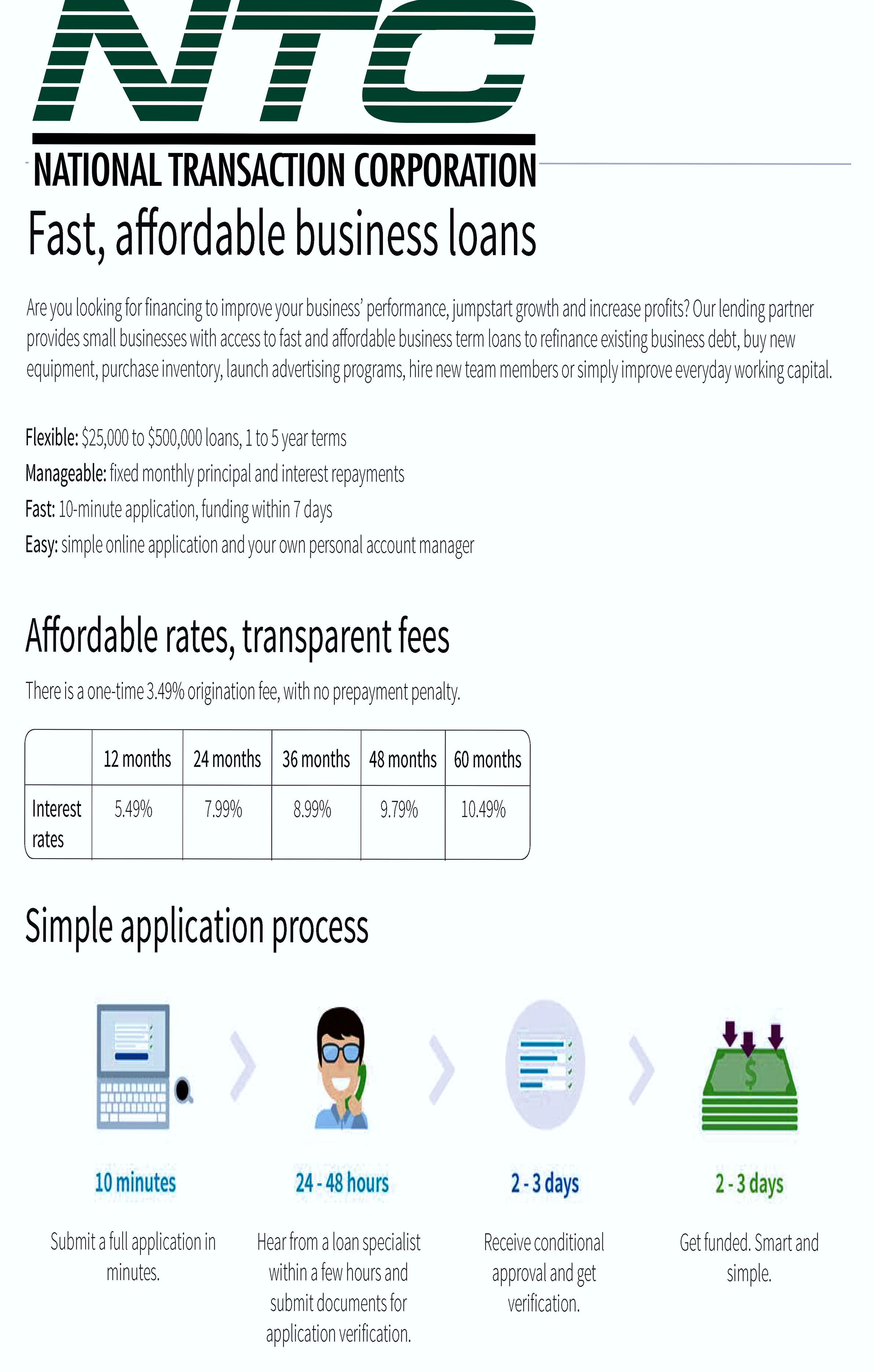
July 19th, 2016 by Elma Jane
Here are some of the Common Business Loan Fees:
Application Fee – is a fee charged to cover the costs of processing and assessing your loan application.
Bank Wire Fee – When borrowing a loan, lenders commonly wire the money to your bank account via ACH, because the banks need to talk to each other and ensure the money is going to the right place and that no fraud is going on.
Check Processing Fee – ACH transfers are commonly used to collect periodic repayments from the debtor’s bank account. Some lenders offer the option of paying by check, but you’ll have to pay a fee for the extra cost involved.
Closing Cost – not to be confused with closing fees, encapsulate all the fees charged for processing a loan, including origination/closing fees, processing fees, referral fees, and/or packaging fees.
Draw Fee – similar to an origination fee, but is applicable instead for lines of credit.
Guarantee Fee – is charged on all SBA loans above $150K. Guarantee fee is charged to protect against credit-related losses in the mortgage portfolio.
Late Payment Fee – Missing a payment deadline can result in a late fee. A late payment may have an affect on your personal or business credit score.
Origination Fee – an up-front fee charged for processing a new loan application. Prepayment
Penalty – Is a borrower, a bank or mortgage lender agreement that regulates what the borrower is allowed to pay off and when.
Servicing and Maintenance Cost – fees charged to cover the costs associated with collecting payments, maintaining records, following up on delinquencies and any other costs associated with maintaining a term loan or line of credit.
Business loans are available in different types, from merchant cash advances to lines of credit. The most effective way to get the best deal on a business loan is to be educated and know that Fees are Negotiable.
Posted in Best Practices for Merchants, Financial Services Tagged with: ach, bank account, check, credit, fee, fraud, loan, payment








